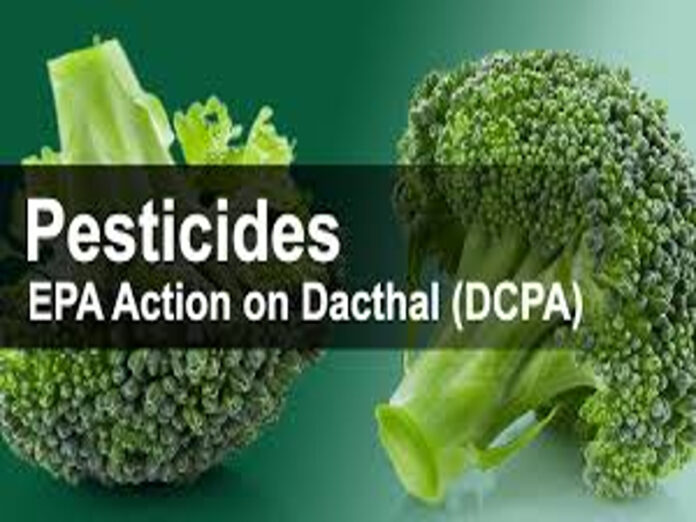U.S. Environmental Protection Agency Issues Emergency Order Last Week Banning The Pesticide “Dacthal”
Wednesday, August 14, 2024, 7:00 A.M. ET. 2 Minute Read, By Elaine Metz, PhD. Environmental Sciences: Englebrook Independent News,
MANHATTAN, NY.- On Tuesday, August 6, 2024, for the first time in nearly four decades, the U.S. Department of Environmental Protection Agency issued an emergency order banning all sales and use of the pesticide dimethyl tetachloroterephthalate (DCPA, also known as Dacthal).
The ban went into effect immediately last Tuesday under the Federal Insecticide, Fungicide, and Rodenticide Act.
For the first time in nearly forty years, the EPA has taken this type of emergency action to protect male and female farmer workers and their unborn children.
Exposure to DCPA while pregnant can cause changes in fetal thyroid hormone levels, leading to low birth weight, impaired brain development, decreased IQ, and impaired motor skills, later in life.
DCPA is primarily used in the agricultural production of broccoli, Brussels sprouts, cabbage, and onions. An EPA assessment estimated that women farm workers using DCPA products could be exposed to concentrations 20 times greater than the estimated safe level limit for unborn babies. The assessment also determined that levels of DCPA in treated fields remained unsafe for over 25 days after application despite workers being allowed to enter treated areas after only 12 hours.
The EPA determined that the continued use of DCPA products during the time it would take to follow the normal cancellation procedures posed too much of an immediate hazard, so an Emergency Order was necessary.
Michael Freedhoff, Assistant Administrator for the Office of Chemical Safety and Pollution Prevention, welcomed the emergency ban, saying, “DCPA is so dangerous that it needs to be removed from the market immediately. It’s EPA’s job to protect people from exposure to dangerous chemicals. In this case, pregnant women who may have never even known they were exposed could give birth to newborns that will experience irreversible lifelong health issues. That’s why, for the first time in almost 40 years, EPA is using its emergency suspension authority to stop the use of a pesticide.”


